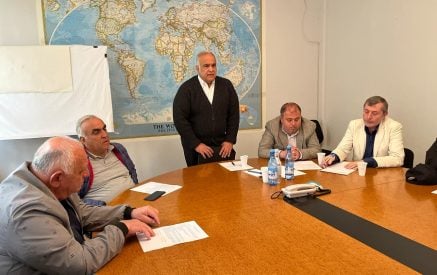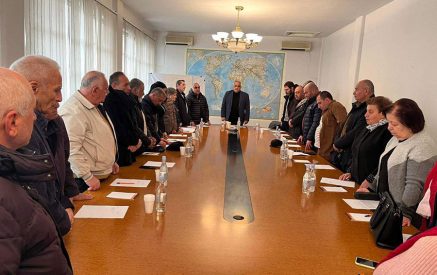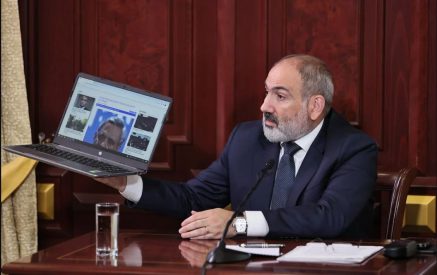It is a common thing that people who work at a barbecue restaurant and stand in front of the barbecue grill from morning till evening, breathe the smell pleasant for many people are so satiated that when they visit someone or receive guests, they cannot eat barbecue any more. The same thing applies to me; being engaged in covering the election this way or another for at least 14 hours a day, I cannot make myself follow that election campaign as a voter, watch the free advertisement series of H1. Since the field of information, first of all, the internet, is abundant, some things pass by me, and I don’t understand quite well the sequence of those events. In particular, I read in the mass media, on websites and social networks, I listen to the observations of the supporters of the Heritage Party, the Armenian National Congress (ANC), and other parties the authors of which complain that their opponents go too far, and if they continue like that, then…. I roughly understand what they are talking about, who is whose opponent, but I don’t know the whole context of the debate. Even if I knew it, naturally, I wouldn’t be able to make final judgments for myself, inside myself.
The only thing I can do is to pass on my experience. And my experience tells me first of all that everything is temporal, changeable. Every hero or idol can become an antihero and a beast in few years, even a few months. For example, there was a Pan-Armenian National Movement (PANM) figure, then anti-PANM figure in the 1990s by the name of Albert Baghdasaryan who, by the way, contributed greatly to defending Syunik, in particular. (Albert has left active politics now.) He was Levon Ter-Petrossian’s fan in 1990-92, as ardent as today’s youth. In 1993-94, he became Ter-Petrossian’s opponent and threatened the first president with the “Romanian scenario,” i.e. the fate of Ceausescu. Let me remind you that Nicolae Ceausescu was a Romanian communist tyrant who was executed, along with his wife, by firing squad in 1989, according to the decision of a hastily formed revolutionary tribunal. In those years, it was roughly the same as to threaten now with the fate of Saddam or Gaddafi, which today’s revolutionaries do. I know people who enthusiastically welcomed Robert Kocharyan’s coming to power in 1998 and then started to curse him. There are people whose main target was Gagik Tsarukyan, and then he became the only hope of the “bourgeois democratic revolution.”
It is pointless to blame people for thinking like that at the time and then starting to think otherwise. Good for them; this is in their interest today, and that is in their interest tomorrow. The only thing that one can advise is not to be carried away too much by either love and admiration (political, certainly), or hatred and animosity. In that case, the transitions won’t seem too abrupt. And in that case, no one will accuse anyone of going too far.
Everything is temporal, election campaigns, in particular.
Read also
ARAM ABRAHAMYAN























































